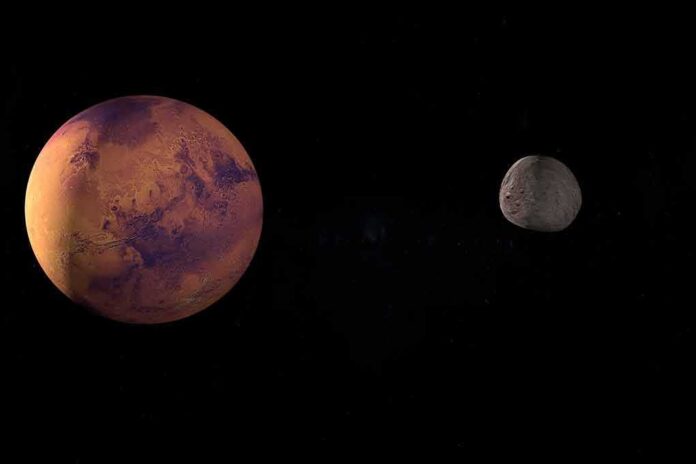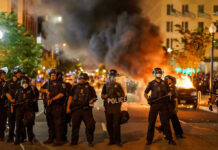
An unexpected collision with space debris has left three Chinese astronauts stranded, spotlighting the growing threat of orbital debris.
Story Highlights
- Space debris collision strands three Chinese astronauts in orbit, delaying their return.
- Shenzhou-20 crew’s return postponed due to damage to their capsule.
- China’s space program faces significant operational challenges with dual crews onboard.
- Incident underscores broader concerns about space debris management and crew safety.
Space Debris: A Growing Threat to Orbital Operations
On November 5, 2025, China’s Manned Spaceflight Agency (CMSA) announced the postponement of the return for three astronauts aboard the Shenzhou-20 spacecraft. The delay comes after the capsule’s hull was damaged, likely by space debris, emphasizing the escalating risks of low Earth orbit operations. The astronauts, Chen Dong, Chen Zhongrui, and Wang Jie, were scheduled to return after a seven-month mission but will now remain aboard the Tiangong space station.
The Tiangong space station, known as the “Heavenly Palace,” is a testament to China’s independent space capabilities. The present situation marks a unique challenge for the CMSA, as it must manage a dual-crew scenario. The Shenzhou-21 crew, which arrived before the incident, is aiding in damage assessment and potential repairs. This collaboration highlights China’s operational maturity and commitment to astronaut safety.
Operational Challenges and Safety Protocols
The postponement of the Shenzhou-20 return mission intensifies the demands on Tiangong’s resources, with two crews now sharing the station. Life support, resource allocation, and task coordination have become critical, pressing the CMSA to balance immediate operational needs with long-term mission objectives. The agency’s decision to prioritize astronaut safety over schedule adherence is a reassuring affirmation of its commitment to crew welfare.
Space debris represents a documented hazard for all spacefaring nations, and this incident underscores the necessity for robust contingency planning. Currently, both crews are working to assess the extent of the damage. The potential use of the Shenzhou-21 spacecraft as a backup return vehicle remains under consideration, highlighting the complexities of space mission logistics.
Broader Implications for the Space Sector
This event has amplified international discussions surrounding space debris management and the need for enhanced tracking and collision avoidance measures. The CMSA’s transparent handling of the situation and its swift response have bolstered the credibility of China’s human spaceflight program. Moving forward, this incident may drive revisions in spacecraft design standards and pre-launch debris risk assessments.
The incident serves as a stark reminder of the ongoing challenges in space exploration. It reinforces the importance of international cooperation in addressing space debris, a shared concern that transcends national boundaries. As China’s space program continues to evolve, its ability to navigate these challenges will be crucial in maintaining its standing as a leading spacefaring nation.
Sources:
Three astronauts stranded in space after ‘unknown object’ …
Video: Chinese astronauts stranded in space after debris hit …















